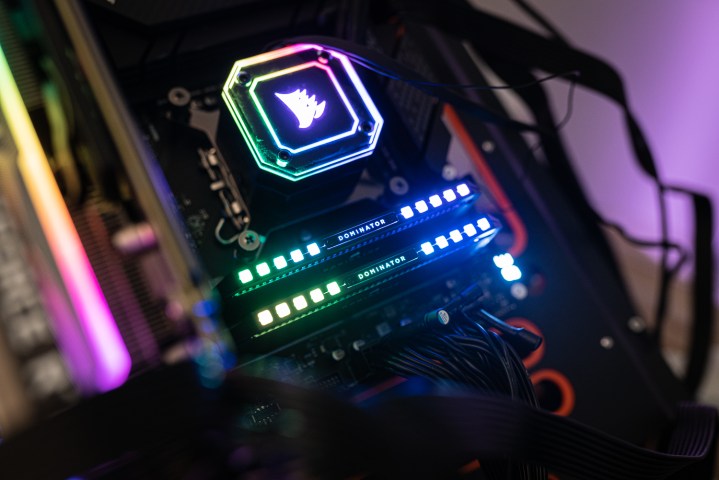
A wide range of new SSDs are facing overheating issues when pushed to their limits, thereby resulting in thermal shutdowns. The malfunction is specific to PCIe 5.0 SSDs based on the Phison PS5026-E26 controller inside. If you don’t have a proper cooling solution in place, you could be in for a world of trouble.
The issue was first discovered by Phoronix and TechPowerUp back in May while using the Corsair MP700 SSD. According to Phoronix, the drive started malfunctioning within a few minutes of usage, where the operating system started generating file system errors. TechPowerUp, on the other hand, faced thermal shutdown in less than two minutes. It is noteworthy that the Corsair MP700 was originally supposed to launch with a beefy heatsink. However, Corsair ended up removing the thermal solution in the final retail product.
A recent report now claims that the shutdown issue is not just limited to the Corsair MP700. German news portal Computerbase suggests that the Seagate FireCuda 540, Gigabyte Aorus Gen5 10000, and Adata Legend 970 are all potential victims. This is because all of these PCIe 5.0 SSDs make use of the same Phison E26 controller as the Corsair MP700.
Compared to PCIe 4.0 SSDs, the latest-gen PCIe 5.0 drives run hot if used without an active or passive cooler. Since PCIe 5.0 drives offer higher performance, they also consume more power, thus proper cooling is a necessity.

Phison has already given a statement to Tom’s Hardware, clarifying that all Phison E26-based SSDs are intended to be used with a heatsink, even if they are shipped without one. Additionally, most motherboards that support PCIe 5.0 include cooling solutions specifically designed for Gen5 SSDs. The company has also released a new firmware (v22.1) that addresses the issue where PCIe 5.0 SSDs throttle in a controlled manner instead of crashing.
The new firmware comes with link-state thermal throttling that reduces the PCIe interface speed (PCIe 5.0 to PCIe 4.0) to lower the temperature of the physical layer without throttling the processor clock. While this is clearly going to impact the SSD’s read and write speeds, the new firmware should offer an acceptable level of performance at high temperatures.
In case you are using any of the above-mentioned SSDs, or one that makes use of the Phison E26 controller, we highly recommend using it with a heatsink. Updating to the latest firmware is also a good way to ensure that your SSD operates safely.
Editors' Recommendations
- SSD buying guide: how to pick the right SSD for your needs in 2023
- The Samsung 990 Pro SSD is built for PS5 and DirectStorage
- Future M.2 SSDs will be powerful, but with one key flaw
- AMD RX 7900 XT could be the first-ever PCIe 5.0 graphics card
- This new TeamGroup SSD is one of the fastest drives ever




